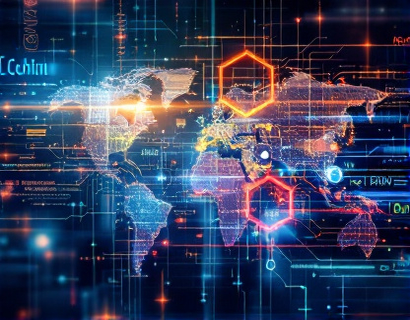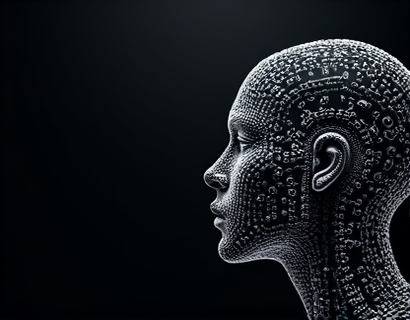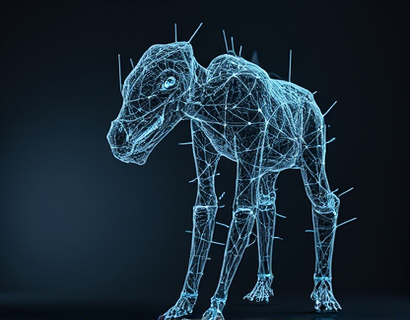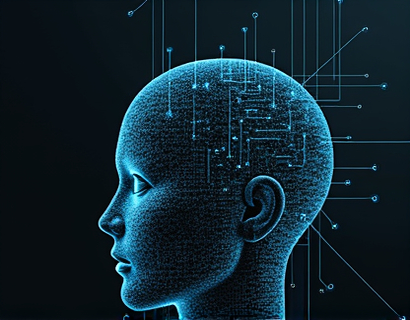Elevating Digital Marketing with AI and Crypto: A New Era for Ecosystem Engagement
The intersection of artificial intelligence (AI) and blockchain technology is revolutionizing digital marketing, creating unprecedented opportunities for brands and users alike. This fusion not only enhances user engagement but also drives significant growth in the evolving online ecosystem. For tech-savvy innovators and early adopters, understanding how AI and crypto can be leveraged to elevate digital marketing strategies is crucial. This article delves into the transformative impact of merging blockchain and AI, offering insights and strategies that can redefine ecosystem engagement.
The traditional digital marketing landscape is rapidly changing, driven by technological advancements and shifting consumer behaviors. AI has become an indispensable tool, offering sophisticated analytics, personalized experiences, and automated processes. Meanwhile, blockchain technology brings transparency, security, and decentralization to the table. When combined, these technologies create a powerful synergy that can redefine how brands interact with their audiences and how users engage with digital content.
Enhancing User Engagement through AI-Driven Personalization
One of the most significant benefits of integrating AI into digital marketing is the ability to deliver highly personalized experiences. AI algorithms can analyze vast amounts of user data to understand preferences, behaviors, and patterns. This insights-driven approach allows marketers to tailor content, offers, and interactions to individual users, increasing relevance and engagement. For instance, AI can predict which products a user is likely to be interested in based on their browsing history and purchase behavior, thereby enhancing the shopping experience.
Personalization extends beyond product recommendations. AI can optimize user interfaces, adapt content in real-time, and even anticipate user needs before they are explicitly expressed. This level of personalization not only improves user satisfaction but also fosters deeper connections between brands and their audiences. In the context of blockchain, AI can leverage decentralized data sources to create more accurate and comprehensive user profiles, ensuring that personalization efforts are both effective and respectful of user privacy.
Blockchain's Role in Building Trust and Transparency
Blockchain technology is often associated with cryptocurrencies, but its applications in digital marketing extend far beyond finance. The inherent properties of blockchain—transparency, immutability, and decentralization—make it an ideal tool for building trust and ensuring authenticity in marketing practices. By using blockchain to track the origin and journey of digital assets, brands can provide transparent and verifiable proof of ownership, reducing fraud and enhancing consumer confidence.
Moreover, blockchain can facilitate secure and transparent data sharing between parties. In a decentralized ecosystem, users have greater control over their data, deciding who can access it and for what purpose. This shift empowers consumers and aligns with the growing demand for privacy and data sovereignty. AI can complement blockchain by analyzing decentralized data streams, providing valuable insights while maintaining user trust.
AI-Powered Chatbots and Customer Service
Chatbots have become a staple in digital marketing, offering 24/7 customer support and enhancing user experience. When powered by AI, chatbots can understand natural language, learn from interactions, and provide more sophisticated and human-like responses. This not only improves customer satisfaction but also reduces the workload on human support teams. AI-driven chatbots can handle a wide range of queries, from simple FAQs to complex problem-solving, ensuring that user issues are resolved efficiently and effectively.
Integrating blockchain into chatbot operations can further enhance security and privacy. By storing user interactions on a blockchain, brands can ensure that sensitive information is protected and that user consent is respected. AI can analyze these secure interactions to refine chatbot performance, creating a virtuous cycle of improvement and user trust.
Decentralized Marketing and Community Engagement
The decentralized nature of blockchain opens new avenues for marketing and community engagement. Decentralized applications (dApps) and smart contracts can create inclusive and participatory marketing environments where users have a stake in the brand's success. For example, tokenized loyalty programs can reward users for their engagement, referrals, and other valuable actions, fostering a sense of community and loyalty.
AI can enhance decentralized marketing by analyzing community dynamics, identifying key influencers, and optimizing content distribution. By understanding the behavior and preferences of community members, brands can create more targeted and impactful campaigns. Blockchain ensures that these interactions are transparent and that rewards are distributed fairly, further strengthening community bonds.
Data Privacy and Security in AI-Centric Marketing
As AI becomes more integral to digital marketing, data privacy and security remain paramount concerns. Blockchain technology offers robust solutions to these challenges by providing a secure and transparent way to manage user data. Unlike traditional centralized databases, blockchain distributes data across a network of nodes, making it extremely difficult for malicious actors to manipulate or steal information.
AI can work in tandem with blockchain to enhance data privacy. Advanced encryption techniques and zero-knowledge proofs allow for data analysis without exposing sensitive information. This ensures that brands can derive valuable insights while respecting user privacy. AI algorithms can also monitor and detect potential security threats in real-time, further safeguarding user data.
Optimizing Campaign Performance with AI and Blockchain
AI and blockchain can significantly improve the performance of marketing campaigns. AI-driven analytics can provide real-time insights into campaign effectiveness, allowing marketers to make data-driven decisions and adjustments on the fly. This agility is crucial in a fast-paced digital landscape where consumer behavior can shift rapidly.
Blockchain can enhance this process by creating immutable records of campaign performance metrics. Smart contracts can automate the execution of campaign adjustments based on predefined criteria, ensuring that optimizations are applied consistently and transparently. AI can analyze these records to identify trends and patterns, further refining future campaigns. This combination of technologies ensures that marketing efforts are not only effective but also efficient and accountable.
Challenges and Considerations
While the potential of AI and blockchain in digital marketing is vast, there are several challenges and considerations to keep in mind. One of the primary challenges is the technical complexity involved in integrating these technologies. Brands and marketers need to invest in skilled personnel or partner with experts who can navigate the intricacies of AI and blockchain.
Another consideration is the regulatory landscape. As AI and blockchain continue to evolve, regulatory frameworks are still catching up. Brands must stay informed about local and international regulations to ensure compliance and avoid legal pitfalls. Transparency and ethical practices are essential in building trust with users and regulators alike.
Additionally, there is the issue of scalability. While blockchain offers many benefits, it can be resource-intensive and slow compared to traditional systems. However, ongoing developments in blockchain technology, such as layer 2 solutions and more efficient consensus mechanisms, are addressing these concerns. AI, on the other hand, requires substantial computational power, which can be a barrier for smaller brands. Cloud-based AI services and optimized algorithms can help mitigate these challenges.
Future Trends and Opportunities
The future of AI and blockchain in digital marketing is promising, with several exciting trends on the horizon. One such trend is the rise of AI-powered creative generation, where algorithms can create custom content, from copy to visuals, tailored to specific audience segments. This can significantly reduce the time and cost associated with content creation while maintaining high quality and relevance.
Another trend is the integration of AI and blockchain in augmented reality (AR) and virtual reality (VR) experiences. These immersive technologies, combined with AI-driven personalization and blockchain's transparency, can create unparalleled user experiences. For instance, AR campaigns can use AI to adapt to user interactions in real-time, while blockchain ensures that user data and assets are secure and verifiable.
Furthermore, the convergence of AI, blockchain, and the Internet of Things (IoT) is opening new frontiers in marketing. IoT devices generate vast amounts of data that can be analyzed by AI to create more context-aware and timely marketing interventions. Blockchain can secure the data transmission and storage, ensuring that user privacy is maintained throughout the process.
In conclusion, the fusion of AI and blockchain is poised to revolutionize digital marketing, offering unprecedented opportunities for brands to engage with their audiences in meaningful and secure ways. By leveraging these technologies, marketers can create personalized, transparent, and community-driven experiences that drive growth and foster lasting relationships. For tech-savvy innovators and early adopters, embracing this transformative combination is essential to stay ahead in the evolving digital landscape.










































